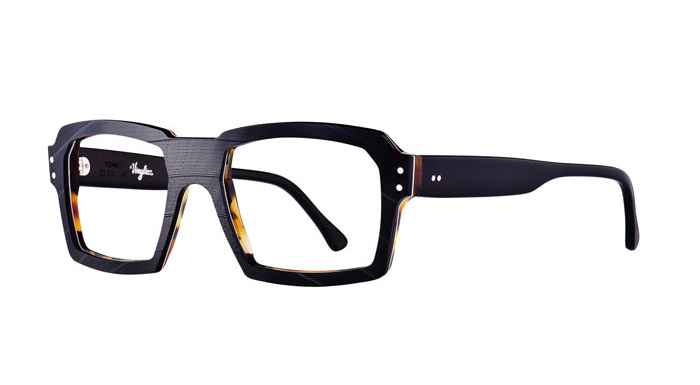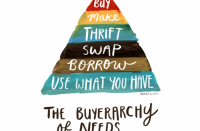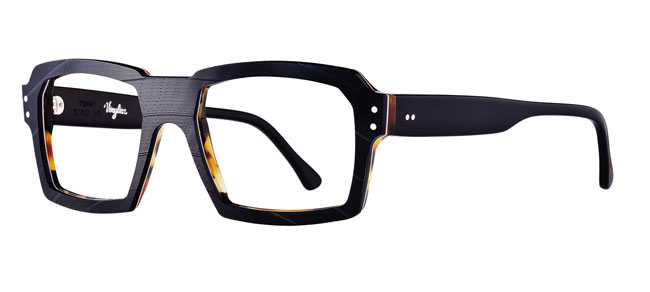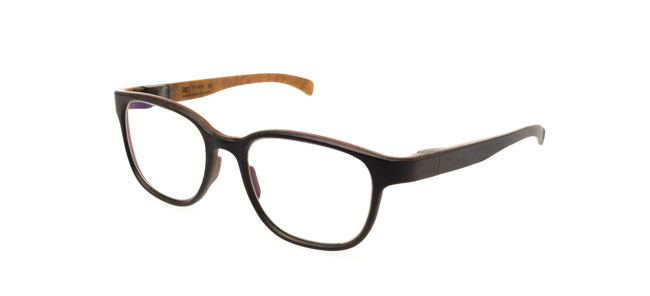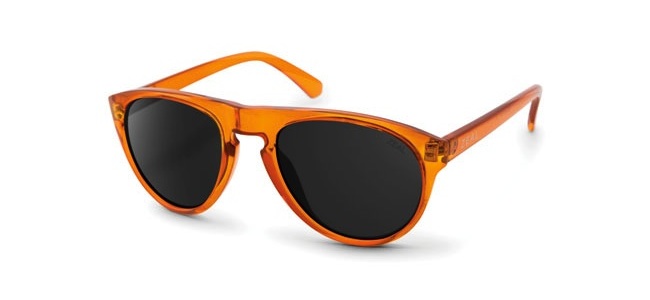The world of eyewear is rife with mass-produced, label-driven brands, but if you search beyond the nearest chain or big-box store, you will likely find some truly remarkable glasses. As the buyer for Insight Eye Care, an independent optometry and optical boutique in Waterloo, Ontario, I have had the opportunity to meet creative designers from all over the world
who appreciate quality, environmental sustainability and social responsibility.
The world of eyewear is rife with mass-produced, label-driven brands, but if you search beyond the nearest chain or big-box store, you will likely find some truly remarkable glasses. As the buyer for Insight Eye Care, an independent optometry and optical boutique in Waterloo, Ontario, I have had the opportunity to meet creative designers from all over the world
who appreciate quality, environmental sustainability and social responsibility.
In 2004, brothers Zack and Zoltan of Vinylize Eyewear in Hungary began creating functional pieces of eyewear art with reused materials. Their first line of frames was inspired by their father’s record collection and made with vinyl salvaged from Budapest flea markets. Today, the brothers continue to upcycle old vinyl for their timeless eyewear, producing not only artistic, environmentally conscious frames, but practical glasses that have a long lifespan. A quality, handcrafted frame will typically produce less waste because the product has integrity and longevity. Many mass-produced frames lack such durability and consumers often face another purchase sooner than expected.
Completely new ideas are rare in the fashion industry. More often than not, designers simply tweak an existing style or trend. For instance, many eyewear companies are now creating frames from wood – but ROLF Spectacles is doing it better. This family-run company based in Austria began making eyewear by reconfiguring a milking machine, moped brakes and old cylinders into a crafty device for frame construction. ROLF is now winning design awards for spectacles made from 20 different kinds of wood, including bog oak, walnut and pepper beech ethically sourced through European suppliers.
For this company, working with wood is not about being trendy, but about trend-setting by using sustainable natural materials to produce a technologically advanced and functional work of art. ROLF frames, for example, have no metal components. In preparation for the release of their inaugural collection, they tested 75 different hinge types before finding a design that highlights craftsmanship and quality.
When I first viewed the ROLF collection, in a handcrafted booth in Milan, I felt like I was stepping into a cottage full of family and friends. One of their European sales representatives offered me a beer and introduced me to Roland Wolf, one of the four founders. Choosing eyewear from ROLF Spectacles is like buying produce from farmers you know and trust – people who care about quality and building relationships.
Another company that pays attention to its ecological footprint is Zeal Optics. Based in Boulder, Colorado, Zeal is the only company in the world to use plant-based materials in 100 percent of their sunglass frames. A few of their models are even made entirely from US-grown cotton, resulting in a product that is completely biodegradable. The cotton-based material, once purified into a mouldable resin, will biodegrade in anaerobic (zero-oxygen) environments. During its oxygenated lifetime, the frame looks and functions like any other high-quality plastic – yet 18 months in a landfill or at the bottom of a lake and it is gone.
Zeal lens plastic is produced using castor beans rather than crude oil, thereby raising the company’s global responsibility to a whole new level – 5,480 to be precise. That is how high, in feet (1,670 metres), Zeal’s home base sits above sea level in Colorado and how many trees Zeal plants each year.
Zeal not only aims to change the eyewear industry with its sustainable practices in manufacturing, but the company is also working toward change in individual lives and communities all over the world. You can follow Zeal’s #exploremore on Instagram, Twitter and the Zeal blog, as an array of “Ambassadors” – athletes, explorers and creatives who exemplify the company’s culture – chronicle their adventures around the world, all through Zeal lenses, of course. For example, Insight Eye Care introduced Zeal Optics to a father-son duo who are travelling through the Canadian wilderness and sharing their journey on their website, explorethebackcountry.com. Zeal has also partnered with not-for-profits such as Second Mile Water, 5 Gyres Institute and Protect Our Winters to address climate change, plastic pollution and access to safe drinking water.
Designers like Vinylize, ROLF Spectacles and Zeal Optics are making waves in the optical industry by choosing strong environmental platforms without compromising on quality and style. As a buyer, it is refreshing to connect with designers who share my values. If you have a heart for environmental sustainability and an eye (or two) for fashionable spectacles, you should introduce yourself to upcycled vinyl from Vinylize, wooden frames from ROLF or biodegradable sunglasses from Zeal.
While there’s not yet an ecolabel for eyewear, there’s an ecofriendly style to suit a range of budgets. Learn more about ethical spectacles by visiting a local independent optical boutique and exploring your options. Ask the staff a lot of questions about the lines they carry and what sustainability features they offer. Most quality brands have a story. Find the one that speaks to you.
Living and breathing eyewear, Neil Moser is the Marketing Manager and Buyer at Insight Eye Care, an optical boutique in Waterloo, Ontario. He is constantly working on community marketing initiatives and acquiring independently designed and exclusive spectacle collections from around the world.


